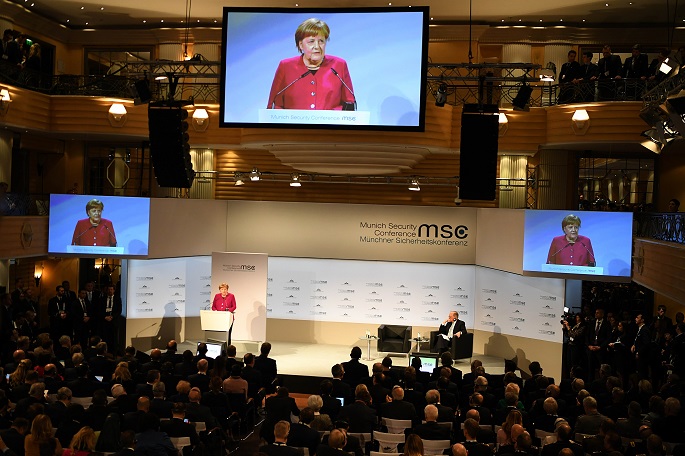Transatlantic links endure tests at Munich Conference
Published : 17 Feb 2019, 00:47
Updated : 17 Feb 2019, 02:59
During the ongoing 55th Munich Security Conference, the transatlantic relations is one of this year's most discussed and central issues.
The ties between the European Union (EU) and the United States has always been complicated and riddled with disagreements, said Julianne Smith, former deputy national security advisor to former U.S. vice president Joe Biden.
UPHOLD FAIRNESS PRINCIPLES
According to the result of a representative public opinion poll "Security Radar 2019 - Wake-Up Call for Europe" of the Vienna-based FES Regional Office for Cooperation and Peace in Europe, which is presented on Saturday at the Munich Security Conference, half of the German respondents think the U.S. is a threat to security in Europe.
German Defence Minister Ursula von der Leyen said in her opening speech that the North Atlantic Treaty Organization (NATO) and the EU should seek true partnership, which should not be built on dominance and should not create political or economic dependence.
Meanwhile, she told the conference delegates that the principles of fairness should be upheld in the transatlantic friendship.
"NATO is more than a military alliance, it is a political alliance," she said.
Whether on trade, counter-terrorism cooperation or Iran, fostering EU-U.S. cooperation is a never-ending exercise in patience, diplomacy and bureaucratic acrobatics, Smith wrote in the The Security Times, a special edition of the German times for the 55th Munich security conference.
"Unfortunately for the EU, the Trump administration's attitudes and policies towards the EU are but one of its many challenges at the moment," she noted.
The conference, scheduled from Friday to Sunday, has attracted numerous heads of state and government and other prestigious figures in world politics and security.
FOR OWN SECURITY
Unlike his predecessors, Trump does not appear to see any value in America's relationship with the EU, Smith noted.
Trump believes that the EU was "formed in order to take advantage" of the U.S. and that the EU is more adversary than ally. Last summer he labeled the EU as a "foe".
"Nobody treats us much worse than the European Union," Trump said last November.
At the annual conference, German Foreign Minister Heiko Maas criticized in his speech Trump's go-it-alone approach as counter-productive, and called for a return to multilateral solutions.
Maas said that Trump's steel tariffs cost jobs in the U.S., increased steel prices and are threatening jobs in Europe.
Maas also criticized the U.S.'s unilateral withdrawal from the nuclear deal with Iran, one of the signature achievements of EU-U.S. cooperation. He urged a return to cooperation, saying Germany has "no interest in a division of the West."
In addition, Trump has long been ripping the NATO members that have not met the two-percent benchmark on military spending.
NATO's European allies have spent more on defense for a second consecutive year in 2017, but the majority of them still failed to meet the target of spending two percent of their GDP on defense.
Von der Leyen addressed in Munich that Germany remains firmly committed to the goal of increasing defence spending to 2 percent.
However, British Defence Secretary Gavin Williamson said that European states "should not be spending 2 percent of GDP on defence for the United States. We should be spending 2 percent of GDP on defence for ourselves, for our own security."


